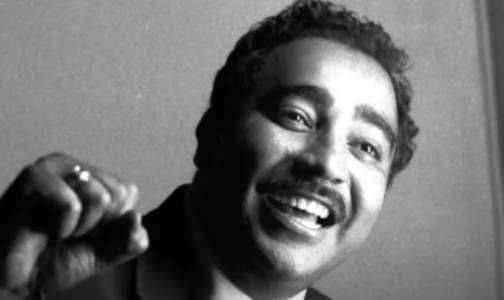Remembering Charles Rangel: Harlem’s "Lion of Lenox Avenue" leaves a legacy of service at 94
By
Veronica E.
- Replies 0
Charles Rangel, one of the most enduring figures in American politics and a towering presence in Harlem for decades, has died at the age of 94.
Known fondly as the “Lion of Lenox Avenue,” Rangel's life and work stretched far beyond his New York district.
For nearly half a century, he touched communities across the country and helped shape conversations around justice, opportunity, and public service.
More than just a longtime congressman, Rangel was a decorated war veteran, a fierce advocate for civil rights, and a symbol of resilience who never forgot his roots.
His journey from the streets of Harlem to the halls of Congress is a powerful reminder of what’s possible with determination and heart.

From Harlem to the battlefield—and back again
Born and raised in Harlem, Rangel’s early years were marked by hardship and uncertainty.
He dropped out of high school, but his service in the Korean War would change the course of his life.
Wounded in combat, he earned a Purple Heart and Bronze Star before returning home with a renewed sense of purpose.
Thanks to the G.I. Bill, he went on to earn degrees from New York University and St. John's University Law School—setting the stage for a career that would put him at the forefront of American politics.
Rangel’s political rise began in 1970 when he unseated Adam Clayton Powell Jr., another Harlem legend, in a hotly contested election.
That victory marked the beginning of his 46-year run in Congress, where he became one of the most influential voices for underserved communities.
Also read: Remembering Cindy Pritzker: The legacy of the Hyatt heiress who passed away at 101
A career defined by impact
During his decades in Washington, Rangel championed major legislation aimed at improving the lives of working families, veterans, and those living in poverty.
He co-founded the Congressional Black Caucus and became the first Black chair of the powerful House Ways and Means Committee.
Under his leadership, the committee helped craft the Affordable Care Act—landmark legislation that expanded healthcare access for millions.
He also played key roles in initiatives like the national Empowerment Zone program, which spurred economic development in struggling areas, and the Low-Income Housing Tax Credit, which has helped countless families afford safe housing.
Also read: The sports world mourns: Golf legend passes away at 81
Setbacks, strength, and standing tall
Rangel’s career was not without controversy.
In 2010, he faced an ethics investigation that led to his censure by the House.
Yet even in difficult moments, he remained unapologetically committed to his values and his community.
“I’ll be judged by my life in its entirety,” he said defiantly, a sentiment echoed by those who knew him best.
And indeed, that life was filled with impact: Rangel sponsored 40 laws and left his mark on numerous social and economic reforms.
He also mentored generations of rising political leaders—many of whom credit him with shaping their paths in public service.
A Harlem icon and national leader
Charles Rangel wasn’t just a political figure—he was part of Harlem’s soul.
As the last living member of the area’s famed “Gang of Four,” alongside David Dinkins, Percy Sutton, and Basil Paterson, Rangel helped pave the way for Black leadership in New York and across the US.
Even as Harlem changed over the years, Rangel’s love for his neighborhood never wavered.
He fought tirelessly to protect its political voice and ensure that its people continued to be heard.
Also read: A legacy left behind: Hollywood legend and Steven Spielberg’s right-hand man passes away at 96
Tributes from across the aisle
Following news of his passing, leaders from all walks of life expressed admiration for Rangel’s contributions.
Senate Minority Leader Chuck Schumer remembered him as “a great friend” who never stopped fighting for what he believed in.
New York City Mayor Eric Adams called him “an exemplary model of devotion and courage.”
The Congressional Black Caucus praised his “tireless advocacy, historic firsts, and dedication to justice.”
Charles Rangel’s story is one of perseverance, purpose, and public service.
He showed that setbacks don’t have to define us—and that staying true to your community can make a lasting difference.
Read next: Elaine Wynn passes away at 82: A look back at the legacy of the "Queen of Las Vegas"

To our GrayVine readers: if you remember Rangel’s time in office, met him at a community event, or followed his work over the years, we invite you to share your reflections. How did his leadership affect you or your neighborhood? What legacy do you think he leaves behind?
Let’s honor Charles Rangel not just with words, but by carrying forward the ideals he stood for—compassion, service, and courage.
Known fondly as the “Lion of Lenox Avenue,” Rangel's life and work stretched far beyond his New York district.
For nearly half a century, he touched communities across the country and helped shape conversations around justice, opportunity, and public service.
More than just a longtime congressman, Rangel was a decorated war veteran, a fierce advocate for civil rights, and a symbol of resilience who never forgot his roots.
His journey from the streets of Harlem to the halls of Congress is a powerful reminder of what’s possible with determination and heart.

Charles Rangel, known as the "Lion of Lenox Avenue," spent nearly five decades fighting for justice, equality, and opportunity in Harlem and beyond. Image Source: YouTube / CBS New York.
From Harlem to the battlefield—and back again
Born and raised in Harlem, Rangel’s early years were marked by hardship and uncertainty.
He dropped out of high school, but his service in the Korean War would change the course of his life.
Wounded in combat, he earned a Purple Heart and Bronze Star before returning home with a renewed sense of purpose.
Thanks to the G.I. Bill, he went on to earn degrees from New York University and St. John's University Law School—setting the stage for a career that would put him at the forefront of American politics.
Rangel’s political rise began in 1970 when he unseated Adam Clayton Powell Jr., another Harlem legend, in a hotly contested election.
That victory marked the beginning of his 46-year run in Congress, where he became one of the most influential voices for underserved communities.
Also read: Remembering Cindy Pritzker: The legacy of the Hyatt heiress who passed away at 101
A career defined by impact
During his decades in Washington, Rangel championed major legislation aimed at improving the lives of working families, veterans, and those living in poverty.
He co-founded the Congressional Black Caucus and became the first Black chair of the powerful House Ways and Means Committee.
Under his leadership, the committee helped craft the Affordable Care Act—landmark legislation that expanded healthcare access for millions.
He also played key roles in initiatives like the national Empowerment Zone program, which spurred economic development in struggling areas, and the Low-Income Housing Tax Credit, which has helped countless families afford safe housing.
Also read: The sports world mourns: Golf legend passes away at 81
Setbacks, strength, and standing tall
Rangel’s career was not without controversy.
In 2010, he faced an ethics investigation that led to his censure by the House.
Yet even in difficult moments, he remained unapologetically committed to his values and his community.
“I’ll be judged by my life in its entirety,” he said defiantly, a sentiment echoed by those who knew him best.
And indeed, that life was filled with impact: Rangel sponsored 40 laws and left his mark on numerous social and economic reforms.
He also mentored generations of rising political leaders—many of whom credit him with shaping their paths in public service.
A Harlem icon and national leader
Charles Rangel wasn’t just a political figure—he was part of Harlem’s soul.
As the last living member of the area’s famed “Gang of Four,” alongside David Dinkins, Percy Sutton, and Basil Paterson, Rangel helped pave the way for Black leadership in New York and across the US.
Even as Harlem changed over the years, Rangel’s love for his neighborhood never wavered.
He fought tirelessly to protect its political voice and ensure that its people continued to be heard.
Also read: A legacy left behind: Hollywood legend and Steven Spielberg’s right-hand man passes away at 96
Tributes from across the aisle
Following news of his passing, leaders from all walks of life expressed admiration for Rangel’s contributions.
Senate Minority Leader Chuck Schumer remembered him as “a great friend” who never stopped fighting for what he believed in.
New York City Mayor Eric Adams called him “an exemplary model of devotion and courage.”
The Congressional Black Caucus praised his “tireless advocacy, historic firsts, and dedication to justice.”
Charles Rangel’s story is one of perseverance, purpose, and public service.
He showed that setbacks don’t have to define us—and that staying true to your community can make a lasting difference.
Read next: Elaine Wynn passes away at 82: A look back at the legacy of the "Queen of Las Vegas"
Key Takeaways
- Charles Rangel, former New York congressman and Harlem political icon, has died at 94.
- He was a Korean War veteran and became the first Black chair of the House Ways and Means Committee.
- Rangel co-founded the Congressional Black Caucus and played a key role in shaping the Affordable Care Act.
- His efforts helped create the Empowerment Zone program and the Low-Income Housing Tax Credit.
- Despite a House censure in 2010, he remained a respected leader with a legacy of service and mentorship.
- Rangel was the last surviving member of Harlem’s influential “Gang of Four.”
- Leaders across the political spectrum have honored him for his lifelong commitment to justice, equality, and community.
To our GrayVine readers: if you remember Rangel’s time in office, met him at a community event, or followed his work over the years, we invite you to share your reflections. How did his leadership affect you or your neighborhood? What legacy do you think he leaves behind?
Let’s honor Charles Rangel not just with words, but by carrying forward the ideals he stood for—compassion, service, and courage.






